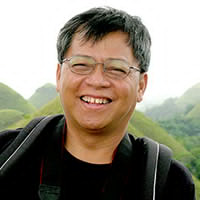SUMMARY
This is AI generated summarization, which may have errors. For context, always refer to the full article.

Readers might be interested in this historical distraction only because one of the major players in the current tragedy is Senator Ferdinand Marcos Jr.
I’ve been looking at documents on fraternity violence at the University of the Philippines for a while now. Yesterday, I stumbled upon the October 7, 1972 memorandum of Juan L. Manuel, Acting Secretary of the Department of Education soon after martial law was declared. I thought it was worth citing some parts just to give readers an idea of the repressive and intimidating atmosphere the dictatorship wanted to impose on schools. I hope this remind us of what kind of despicable human beings the authors of that dictatorship were beginning with the Marcos family down to their cronies and toadies.
The memo was addressed to “heads of state universities and colleges” and immediately went for the jugular. It ordered these officials to “expel, dismiss, or suspend indefinitely, or cause the expulsion, dismissal or suspension indefinitely of any member of the faculty, employee or student who, after summarily investigation, are found to have been engaged or are engaged in subversion, insurgency and other similar activities, or are known to be active members of subversive organization or associations, or are active participants or supporters of such subversive organizations.”
Manuel did not stop there. A set of guidelines was attached to the memorandum that would govern the resumption of classes. School administrators must “remove all members of their faculty or staff, drop students, identified as officers or members of Communist front organizations, such as the Kabataang Makabayan and the Samahang Demokratikong Kabataan.”
The punishment, however, was not just limited to the radicalized. The guidelines turned out to be more sweeping, ordering heads of state universities and colleges to also expel “student facing charges on account of violations of rules and regulations issued by the Department of Education or the schools themselves.” This practically covered any erring student – from the fraternity member found guilty of hazing or engaging in rumbles, to ones who cheated in class.
Other punitive measures were more specific – universities were ordered to “security forces” of schools to conduct “[p]roper screening” and been on the look out for “attaché cases or any other container” that may carry “dangerous weapons or incendiary materials.” Students, faculty members and administrative staff were also required to have “proper identification cards.”
Basic student rights were also thrown out of the window. Campus publications and “the distribution on campus of manifestoes the content of which are inimical to the objective of the New Society and the morale (sic!) of the studentry” were banned. Assemblies “except those purely academic in nature” were likewise prohibited. Finally, student councils and “other campus organizations” were suspended.
Any official found to be not complying with this inquisition would be subjected “to disciplinary administrative action under existing laws and regulations.”
The scenes laid out by Manuel’s memorandum were what greeted many of us when UP Diliman reopened in October. Each building gates were manned by UP security officers aided by agents from the different military intelligence agencies in plainclothes all looking for a face they remembered in some past rallies or assemblies, and upon recognition promptly arresting them.
‘New classmates’
Classes, which were once boisterous in debating politics now fell silent. Those whose professors were jailed or forced to go underground were taken over by instructors who were either apolitical or conservative. “Modern politics” stopped just before Marxism appeared on the European scene or Ho Chi Minh founded the Vietnamese Communist Party. A poltroon refused to teach a class beyond 1848. A class in Southeast Asia was just about to start discussion on the American intervention in Vietnam; after September 21, we were back to the Konbaung Dynasty.
“New classmates” suddenly appeared in class, many standing out because they were out of place: fidgety and none of that swagger of a UP student, bringing wrong books to school, and a silent presence that was clearly discomforting the professor. “Older” students also loitered college lobbies, often their tummies protruding to suggest they were more comfortable doing traffic duties than taking Philosophy 11. Of course, the only people allowed to come in groups of three were the Security Police.
All books with the words “revolution,” “communism,” “socialism,” and all the Gods of leftist politics were taken out of the library shelves, and when you request any of them, you watch the librarian tremble a bit, and whisper “wala dito.” And when you ask why, the curt answer is “alam mo na…”
These are segments of the school scene when Ferdinand Marcos Sr. seized power. His son, now a senator and apparently not a graduate of Oxford, sees nothing wrong when his father installed a dictatorship, imposed this Orwellian nightmare in campuses and rules and looted the country for 14 years.
And you want junior to be the country’s next president? – Rappler.com
Add a comment
How does this make you feel?
There are no comments yet. Add your comment to start the conversation.